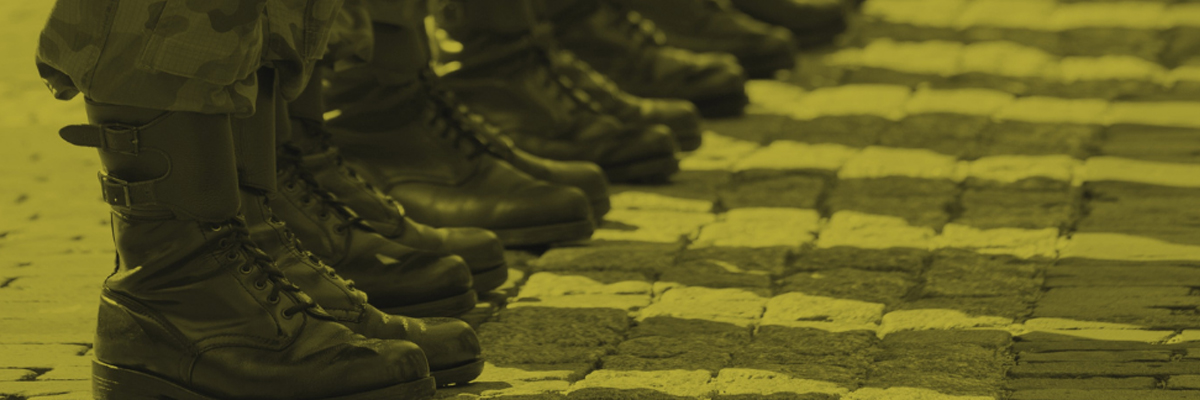
The best place in the world to be a Veteran?
It’s easy to assume, having been part of the UK’s Armed Forces, that other countries operate in a similar way. That government initiatives, supportive resources (like ours!) and an aftercare standard exists. We hear the stories, the rumours and the whispers of what being a veteran overseas is like, but murmerings never show the full picture. They are also subjective.
Out of sheer curiosity, sparked by our in-house conversations, we delved into the support veterans receive in various countries around the world. From government initiatives to how easy it is for them to cut the queue in Starbucks, here’s an insight into how other countries treat their veterans.
United States
Responsible for the term ‘vet culture’, the general consensus is that American veterans are treated with the utmost respect. Yes, we know they enjoy in-store discounts, the best seats in restaurants and Memorial Day street parties. To many the “thank you for your service” can be a little insincere and creepy, but, let’s look at what the support US veterans get - on paper.
With an eye-wateringly large budget, the Department of Veterans Affairs (VA) delivers a plethora of aftercare support from access to VA health carefree to small business programmes for aspiring entrepreneurs.
America Serves - a system of veteran-serving public, private and non-profit organisations - reports that “the federal government runs a dizzying array of economic support programs for veterans” yet highlights key flaws in their ‘overworked’ and ‘autopilot’ systems. From long health waiting times to lack of clarity around disability benefits, it’s evident that there’s plenty of room for growth.
The power of being in uniform may help cut the queues in coffee shops (true story!), but even with all the sweeping presidential declarations and big-budget programmes, their systems are equally challenged with adapting fast to the modern-day service-leaver.
China
After years of protests, lobbying, reports of denied benefits and rumoured hierarchical systems, China recently adopted new laws to strengthen the support to their Ex-Military community.
Boasting 57 million veterans and the world’s largest standing military (of 2 million personnel), the new legislation is a big step towards offering tangible support to service-leavers.
Under the new law, which came into effect 1st Jan 2021, a new wave of benefits and programmes will soon take shape - from tax breaks for businesses hiring former soldiers to local government-run job training to help with employment.
Viewing these changes from the UK, the new laws may seem like basic pillars of support. But, to veterans in China who largely feel overlooked by society, it is a sign their voices are finally being heard.
Canada
If you Google Veteran Affairs Canada (VAC) you’ll quickly discover an evocative mandate, a list of upcoming consultations to improve services and the recent announcement of $20 million in new funding to support veteran organisations in the wake of Covid-19.
It’s easy to find out all about their various programmes, from financial support to educational services - but as with all government-funded schemes there is always more that can be done. Steve Drost, who has worked at the VAC for over 15 years said in a Quora thread:
“We have a long-standing policy of providing practical help for the veterans in form of medical benefits. But the department as a whole also has a reputation for innovating and trying to find new ways of serving the clients. To be blunt, we seem to fail at this more often than we succeed. But we get up, brush ourselves off, and keep trying. Because it’s important.”
A report from 2016 highlighted that less than 60% of veterans feel a strong sense of community belonging - which shines light on how service-leavers in Canada fundamentally feel when they rejoin the civilian world.
India
As an outsider, it’s difficult to cultivate a clear picture of life inside and outside of the Indian army. Whenever any criticism gets leaked from the inside, claims are dispelled abruptly. But, with the rise of social media, keeping veterans quiet about the realities of life after the Military are now finally able to reach wider audiences.
Late last year, reports that women were fighting for equal veteran pension rights hit the headlines. These articles go some way in highlighting the support, or lack thereof, for veterans and the inner politics that govern who receives financial aid, recognition and support after service years come to an end.
Want to join a supportive community of job-seeking, UK veterans? Sign up here.
